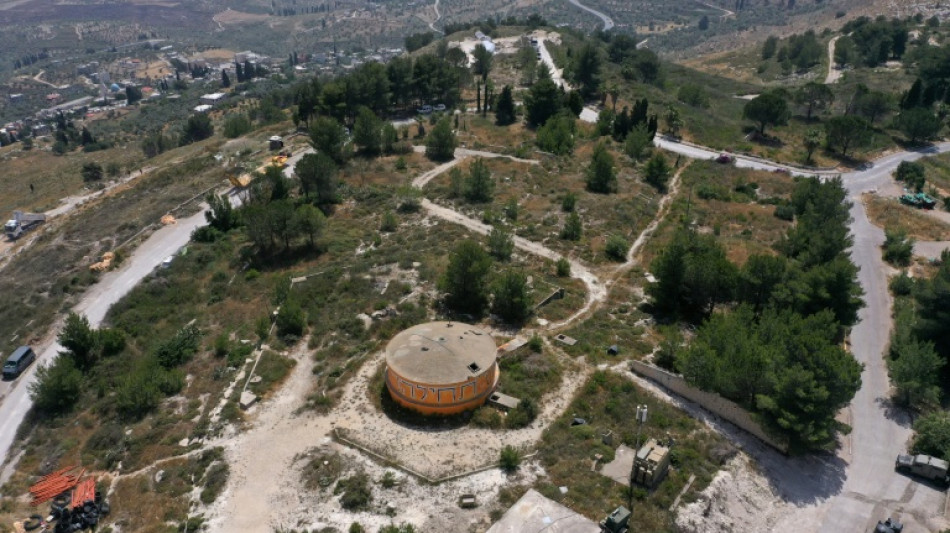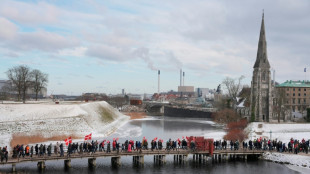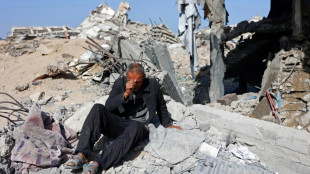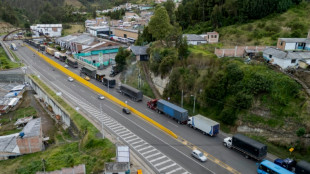

Israel's settlement plan in occupied West Bank draws criticism
Israel announced Thursday the creation of 22 new settlements in the occupied West Bank, drawing sharp condemnation from Britain, Jordan and others already at odds with the country over its Gaza war.
London called the move a "deliberate obstacle" to Palestinian statehood, while UN chief Antonio Guterres' spokesman said it pushed efforts towards a two-state solution "in the wrong direction".
Israeli settlements in the West Bank are regularly condemned by the United Nations as illegal under international law and are seen as a major obstacle to lasting peace.
The decision, taken by Israel's security cabinet, was announced by far-right Finance Minister Bezalel Smotrich, himself a settler, and Defence Minister Israel Katz, who oversees the communities.
"We have made a historic decision for the development of settlements: 22 new communities in Judea and Samaria, renewing settlement in the north of Samaria, and reinforcing the eastern axis of the State of Israel," Smotrich said on X, using the Israeli terms for the southern and northern West Bank, which it has occupied since 1967.
"Next step: sovereignty!" he added.
Katz said the initiative "changes the face of the region and shapes the future of settlement for years to come".
Not all of the 22 settlements are new. Some are existing outposts, while others are neighbourhoods of settlements that will become independent communities, according to the left-wing Israeli NGO Peace Now.
Hamas accused Israel of "accelerating steps to Judaize Palestinian land within a clear annexation project".
"This is a blatant defiance of the international will and a grave violation of international law and United Nations resolutions," Gaza's Islamist rulers said.
Britain's minister for the Middle East, Hamish Falconer, said the plan imperils "the two-state solution" and does not protect Israel.
Jordan called the decision illegal and said it "undermines prospects for peace by entrenching the occupation".
"We stand against any and all" expansion of the settlements, UN spokesman Stephane Dujarric said, repeating calls for Israel to halt such activity, which he said blocks peace and economic development.
On Telegram, the right-wing Likud party of Prime Minister Benjamin Netanyahu called the move a "once-in-a-generation decision" and said it "includes the establishment of four communities along the eastern border with Jordan, as part of strengthening Israel's eastern backbone".
A map posted by the party showed the 22 sites scattered across the territory.
- 'Heritage of our ancestors' -
Two of the settlements, Homesh and Sa-Nur, are particularly symbolic.
Located in the north of the West Bank, they are resettlements, having been evacuated in 2005 as part of Israel's disengagement from Gaza, promoted by then prime minister Ariel Sharon.
Netanyahu's government, formed in December 2022 with the support of far-right and ultra-Orthodox parties, is the most right-wing in Israel's history.
Human rights groups and anti-settlement NGOs say a slide towards at least de facto annexation of the occupied West Bank has gathered pace, particularly since the start of the Gaza war triggered by Hamas's October 2023 attack on Israel.
"The Israeli government no longer pretends otherwise: the annexation of the occupied territories and expansion of settlements is its central goal," Peace Now said in a statement.
In his announcement, Smotrich offered a pre-emptive defence of the move, saying: "We have not taken a foreign land, but the heritage of our ancestors."
Some European governments have moved to sanction individual settlers, as did the United States under former president Joe Biden -- though those measures were lifted under Donald Trump.
The announcement comes ahead of an international conference led by France and Saudi Arabia at the United Nations next month aimed at reviving the two-state solution.
N.Bhat--MT




